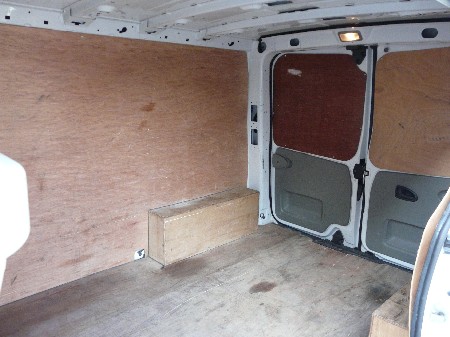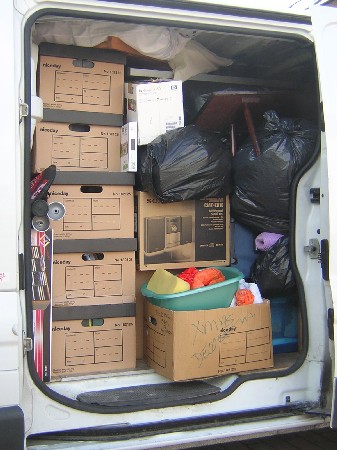One of the attractions of a hired vehicle is that if it goes wrong, it isn’t your problem. That’s true with regard to genuine, unforeseeable breakdowns – but you are still responsible for looking after the vehicle while it is in your care.
The main areas that you are expected to check are oil, water and tyres. When you pick up a rental van, these should all have been checked – but in my experience they may not have been.
Of the last three cars and vans I hired, one was fine, one had low water and one had a nearly flat tyre that would probably have punctured if I had driven it any distance while fully loaded.
If the van you have hired suffers damage as a result of you failing to check the oil, water and tyres, then you may be held liable for the consequences of that damage – which can be considerable. Motoring expert Honest John, writing in the Daily Telegraph, confirms this in response to a reader’s letter (scroll down to the “Start Wreck” heading).
Most rental companies’ terms and conditions also imply this, with words to the effect that the renter is responsible for returning the rental vehicle in the same condition as it was rented, excluding normal wear and tear.
Van Checks
Fortunately, checking the oil, water, tyre pressures and (for convenience and safety) the windscreen wash is quite easy. The SimpleMotoring.co.uk website has a handy illustrated guide to doing all of these tasks, if you are not familiar with them:
Simple Car Care Guide
Van Tyre Pressures
You probably won’t be familiar with the correct tyre pressures for vans – if this is a problem, I would suggest two possible solutions:
- Ring up the van hire company and ask them
- If the tyre on the other side of the van seems fine, check what pressure that is at and pump up the flat tyre to the same pressure (remember that front and rear tyre pressures will be different)
Finally…
Don’t get paranoid or scared about all of this – the vast majority of rentals are completely trouble free. It just pays to be aware of the potential problems and protect yourself from them.



